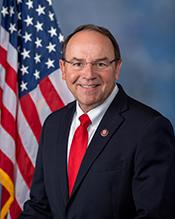0
Immigration Parole Reform Act of 2023
12/15/2023, 3:56 PM
Summary of Bill HR 2453
Under the proposed legislation, the Department of Homeland Security would be required to establish clear guidelines for granting parole to immigrants. These guidelines would include criteria for determining eligibility for parole, as well as procedures for reviewing and adjudicating parole requests.
Additionally, the bill would require the Department of Homeland Security to provide regular reports to Congress on the number of parole requests received, approved, and denied. This increased transparency is intended to ensure accountability and oversight of the parole process. Furthermore, the bill includes provisions to streamline the parole process for certain categories of immigrants, such as victims of human trafficking or domestic violence. These individuals would be eligible for expedited parole consideration under the proposed legislation. Overall, the Immigration Parole Reform Act of 2023 seeks to improve the parole system for immigrants in the United States by establishing clear guidelines, increasing transparency, and providing expedited consideration for vulnerable populations.
Congressional Summary of HR 2453
Immigration Parole Reform Act of 2023
This bill limits the authority of the Department of Homeland Security (DHS) to grant immigration parole (i.e., give official permission for an individual to enter and temporarily remain in the United States).
Specifically, the bill (1) limits what qualifies as an urgent humanitarian reason or a significant public benefit that would justify granting parole, and (2) prohibits granting parole based on an individual's membership in a defined class of individuals.
An urgent humanitarian reason is limited to specified medical emergencies and a significant public benefit is limited to assisting the U.S. government in a law enforcement matter.
Individuals granted parole on the basis of an urgent humanitarian reason or a significant public benefit are not permitted to work while in the United States.
Additionally, the bill provides statutory authority for DHS to grant parole to (1) certain Cuban nationals, (2) certain family members of active-duty Armed Forces members, and (3) certain removed individuals for the purpose of attending their immigration hearing.

